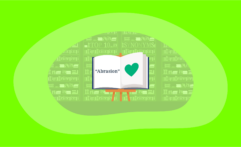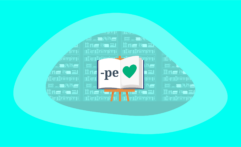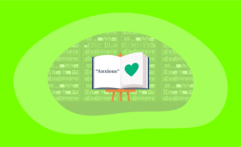Top 10 Positive & Impactful Synonyms for “Effigy” (With Meanings & Examples)
Affiliate Disclosure
Hey fellow impactful ninja ?
You may have noticed that Impactful Ninja is all about providing helpful information to make a positive impact on the world and society. And that we love to link back to where we found all the information for each of our posts.
Most of these links are informational-based for you to check out their primary sources with one click.
But some of these links are so-called "affiliate links" to products that we recommend.
Why do we add these product links?
First and foremost, because we believe that they add value to you. For example, when we wrote a post about the environmental impact of long showers, we came across an EPA recommendation to use WaterSense showerheads. So we linked to where you can find them. Or, for many of our posts, we also link to our favorite books on that topic so that you can get a much more holistic overview than one single blog post could provide.
And when there is an affiliate program for these products, we sign up for it. For example, as Amazon Associates, we earn from qualifying purchases.
What do these affiliate links mean for you?
First, and most importantly, we still only recommend products that we believe add value for you.
When you buy something through one of our affiliate links, we may earn a small commission - but at no additional costs to you.
And when you buy something through a link that is not an affiliate link, we won’t receive any commission but we’ll still be happy to have helped you.
What do these affiliate links mean for us?
When we find products that we believe add value to you and the seller has an affiliate program, we sign up for it.
When you buy something through one of our affiliate links, we may earn a small commission (at no extra costs to you).
And at this point in time, all money is reinvested in sharing the most helpful content with you. This includes all operating costs for running this site and the content creation itself.
What does this mean for me personally?
You may have noticed by the way Impactful Ninja is operated that money is not the driving factor behind it. It is a passion project of mine and I love to share helpful information with you to make a positive impact on the world and society. However, it's a project in that I invest a lot of time and also quite some money.
Eventually, my dream is to one day turn this passion project into my full-time job and provide even more helpful information. But that's still a long time to go.
Stay impactful,
Representation, sculpture, and likeness—positive and impactful synonyms for “effigy” enhance your vocabulary and help you foster a mindset geared toward making a positive impact. So, we had to ask: What are the top ten positive & impactful synonyms for “effigy”?
The top 10 positive & impactful synonyms for “effigy” are representation, sculpture, statue, likeness, image, figure, portrait, bust, memorial, and tribute. Using these synonyms helps you enhance both your communication and psychological resilience in several meaningful ways.
In the table below, you can see all these top ten synonyms including their descriptions, why they are positive and impactful synonyms for “effigy,” and example sentences that highlight how you can use each of these. We’ll then also share ten benefits of why you should use these synonyms, ten interesting facts about the word “effigy,” and a brief history of the development of our alphabet.
Here Are the Top 10 Positive & Impactful Synonyms for “Effigy”
Our list of positive & impactful synonyms for “effigy” help you expand your vocabulary and enhance both your communication and psychological resilience in several meaningful ways (you can read more about it in the next section).
That’s why it’s so important to focus on synonyms that can be used in a positive and impactful way.
Effigy: a sculpture or model of a person | a roughly made model of a person that is made in order to be damaged or destroyed as a protest
Oxford Dictionary
Our top ten synonyms for “effigy” exemplify the beauty of our language—their meaning is not just fixed but can be shaped by the context they are used in.
| Synonym | Description | Example Sentence |
| Representation | A sculpture or model of a person, highlighting the aspect of creating a likeness, akin to an ‘effigy’. | “The museum’s new representation of the historical figure was unveiled.” |
| Sculpture | A three-dimensional work of art, especially a statue, paralleling ‘effigy’s aspect of artistic representation. | “The sculpture in the town square serves as a lasting homage to the founder.” |
| Statue | A carved or cast figure of a person, typically made of stone, metal, or wood, reflecting ‘effigy’s commemorative role. | “The statue of the community leader was placed in the park as a tribute.” |
| Likeness | The fact or quality of being alike; a portrait or representation, akin to ‘effigy’s visual similarity. | “The artist captured her likeness in the portrait with stunning accuracy.” |
| Image | A physical likeness or representation of a person, animal, or thing, photographed, painted, sculptured, or otherwise made visible, similar to ‘effigy’. | “The image of the late poet was displayed at the entrance of the library.” |
| Figure | A statue or similar three-dimensional representation of a person, aligning with ‘effigy’s form of tribute. | “A bronze figure commemorating the hero was erected in the city center.” |
| Portrait | A painting, drawing, photograph, or engraving of a person, emphasizing ‘effigy’s aspect of personal depiction. | “The portrait hanging in the hall captures the essence of the subject’s character.” |
| Bust | A sculpture of a person’s head, shoulders, and chest, highlighting a specific form of ‘effigy’. | “The marble bust of the philosopher was added to the university’s collection.” |
| Memorial | Something, especially a structure, established to remind people of a person or event, akin to ‘effigy’s commemorative use. | “The memorial in the park serves as a reminder of those who served.” |
| Tribute | An act, statement, or gift that is intended to show gratitude, respect, or admiration, paralleling ‘effigy’s honorific intentions in a positive context. | “The tribute to the author included readings from her most famous works.” |
10 Benefits of Using More Positive & Impactful Synonyms
Our positive & impactful synonyms for “effigy” help you expand your vocabulary and enhance both your communication and psychological resilience in several meaningful ways:
- Encouraging Positive Framing: Using positive synonyms allows for a more optimistic and affirmative way of expressing thoughts. This can influence not only the speaker’s or writer’s mindset but also positively impact the audience’s perception and reaction.
- Improving Emotional Intelligence: Learning different positive synonyms helps in accurately expressing emotions. This aids in emotional intelligence, as one can more precisely convey feelings and understand the emotions of others.
- Enhancing Persuasive Communication: In persuasive writing and speaking, using positive synonyms can be more effective in convincing an audience, as people generally respond better to positive language.
- Broadening Emotional Vocabulary: A range of positive synonyms enriches your emotional vocabulary. It’s one thing to say you’re “happy” and another to express that you’re “elated,” “joyful,” or “content.” Each word carries a unique emotional hue.
- Creating a Positive Atmosphere: The use of positive language can create a more constructive and encouraging atmosphere in both personal and professional settings. This can lead to better teamwork, more effective communication, and improved interpersonal relationships.
- Enhancing Creative Writing: For those engaged in creative writing, a repertoire of positive synonyms can help in vividly depicting scenes, characters, and emotions, making the narrative more engaging and lively.
- Improving Mental Health and Well-being: Regularly using and thinking in terms of positive words can influence one’s mental state and outlook on life. Positive language has been linked to greater well-being and a more optimistic outlook.
- Improving Cognitive Flexibility: Expanding your vocabulary with positive synonyms enhances your cognitive flexibility. This means you become more adept at thinking creatively and adapting your language use to different situations. The mental exercise involved in learning and using a variety of positive words can also contribute to overall cognitive health, keeping your mind sharp and responsive.
- Building Social Skills and Empathy: When you have a variety of positive words at your disposal, you’re better equipped to offer compliments, encouragement, and empathetic responses in social interactions.
- Facilitating Conflict Resolution: In situations of conflict, the use of positive language can help de-escalate tension. Having a range of positive synonyms allows for more constructive and diplomatic communication.
Overall, your use of positive synonyms not only broadens your vocabulary but also positively influences your thought processes, emotional expression, and interpersonal interactions.
10 Interesting Facts About the Word “Effigy”
Let’s take a step back and have a look at some interesting facts about the word “effigy”.
- Etymology: “Effigy” is derived from the Latin “effigies,” meaning “representation” or “image.” The term originally referred to sculptured or modeled figures.
- Historical Use: Historically, effigies were created as a representation of a person, especially in sculpture and other artistic forms, often used for religious or ceremonial purposes.
- Political Protests: In modern times, effigies are commonly used in political protests, where they symbolize public dissent against certain figures or policies by burning or destroying the effigy.
- Legal History: In the past, the act of burning effigies was sometimes considered a criminal offense, interpreted as a direct threat to the person being represented.
- Cultural Significance: Effigies hold significant cultural importance in various societies, used in rituals and ceremonies, including effigies of deities or ancestors.
- Guy Fawkes Night: One of the most famous uses of effigies is in the UK during Guy Fawkes Night, where effigies of Guy Fawkes are burned to commemorate the failure of the Gunpowder Plot of 1605.
- Funerary Customs: Effigies have been used in funerary customs, such as the Egyptian practice of creating statues to serve as a home for the soul of the deceased in the afterlife.
- Museum Collections: Many museums around the world hold historical effigies, offering insights into the cultural and artistic practices of past civilizations.
- Educational Tools: Effigies are used as educational tools in museums and historical sites to provide visual and tangible connections to historical figures and events.
- Technology and Effigies: Advances in technology have transformed the making of effigies, with 3D printing and digital modeling offering new ways to create detailed and accurate representations.
A Brief History of Our Alphabet
The story of our alphabet has a rich and compelling history, beginning with ancient civilizations and carrying forward into the present day.
The history of our modern alphabet is a fascinating journey that spans several millennia and cultures. It’s commonly referred to as the Latin or Roman alphabet, and here’s a brief overview of its evolution:
- Phoenician Alphabet (circa 1050 BCE): The story begins with the Phoenician alphabet, one of the oldest writing systems known to use a one-to-one correspondence between sounds and symbols. This Semitic alphabet had about 22 consonants, but no vowels, and was primarily used for trade.
- Greek Alphabet (circa 800 BCE): The Greeks borrowed and adapted the Phoenician script. Crucially, they introduced vowels, making it one of the first true alphabets where each symbol represented a distinct sound (both vowel and consonant). The Greek alphabet had a significant influence on the development of other alphabets.
- Etruscan Alphabet (circa 700 BCE): The Etruscan civilization in Italy adapted the Greek alphabet to their own language. While Etruscan was largely replaced by Latin, their version of the alphabet was a key predecessor to the Roman one.
- Latin Alphabet (circa 700 BCE – Present): The Latin alphabet emerged from the adaptation of the Etruscan script. Ancient Rome used this alphabet, and it spread across Europe as the Roman Empire expanded. The original Latin alphabet did not contain the letters J, U, and W. These were added much later along with other modifications to suit different languages and phonetic needs.
- Modern Variations: Today, the Latin alphabet is the most widely used alphabetic writing system in the world. It has undergone various changes to accommodate different languages and sounds. For instance, English—among other languages—added letters like ‘J’, ‘U’, and ‘W’, while other languages incorporate additional characters like ‘Ñ’ in Spanish or ‘Ç’ in French.
This evolution reflects not just linguistic changes but also cultural and historical shifts, as the alphabet was adapted by different societies across centuries.
Final Thoughts
Expanding your vocabulary is akin to broadening your intellectual horizons and enhancing your capacity to express your thoughts and emotions with precision. By embracing additional synonyms for “effigy,” you’re not just learning new terms, but you’re also gaining nuanced ways to communicate positivity and impact.
The more words you have at your disposal, the more accurately and vividly you can paint your thoughts into speech and writing. So, by growing your vocabulary, especially with positive and impactful words, you’re empowering yourself to engage more effectively and inspiringly with the world around you.
Stay impactful,

Sources
- Society for Personality and Social Psychology: Why a Simple Act of Kindness Is Not as Simple as It Seems: Underestimating the Positive Impact of Our Compliments on Others
- Journal of Personality: Psychological Resilience and Positive Emotional Granularity: Examining the Benefits of Positive Emotions on Coping and Health
- David Sacks: Letter Perfect: The Marvelous History of Our Alphabet From A to Z
- Impactful Ninja: Positive & Impactful Words Starting With A
- Impactful Ninja: Positive & Impactful Words Starting With B
- Impactful Ninja: Positive & Impactful Words Starting With C
- Impactful Ninja: Positive & Impactful Words Starting With D
- Impactful Ninja: Positive & Impactful Words Starting With E
- Impactful Ninja: Positive & Impactful Words Starting With F
- Impactful Ninja: Positive & Impactful Words Starting With G
- Impactful Ninja: Positive & Impactful Words Starting With H
- Impactful Ninja: Positive & Impactful Words Starting With I
- Impactful Ninja: Positive & Impactful Words Starting With J
- Impactful Ninja: Positive & Impactful Words Starting With K
- Impactful Ninja: Positive & Impactful Words Starting With L
- Impactful Ninja: Positive & Impactful Words Starting With M
- Impactful Ninja: Positive & Impactful Words Starting With N
- Impactful Ninja: Positive & Impactful Words Starting With O
- Impactful Ninja: Positive & Impactful Words Starting With P
- Impactful Ninja: Positive & Impactful Words Starting With Q
- Impactful Ninja: Positive & Impactful Words Starting With R
- Impactful Ninja: Positive & Impactful Words Starting With S
- Impactful Ninja: Positive & Impactful Words Starting With T
- Impactful Ninja: Positive & Impactful Words Starting With U
- Impactful Ninja: Positive & Impactful Words Starting With V
- Impactful Ninja: Positive & Impactful Words Starting With W
- Impactful Ninja: Positive & Impactful Words Starting With X
- Impactful Ninja: Positive & Impactful Words Starting With Y
- Impactful Ninja: Positive & Impactful Words Starting With Z




